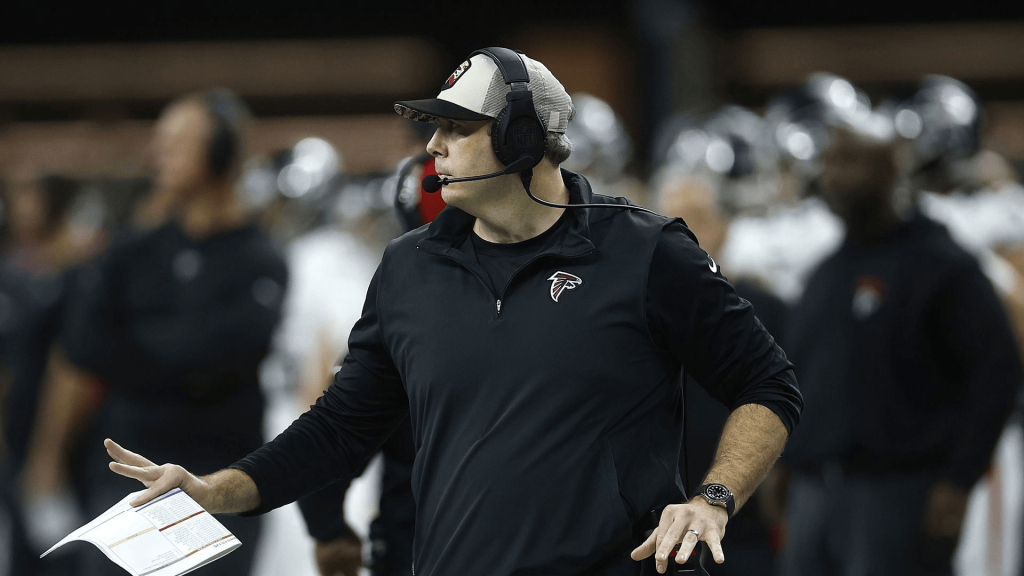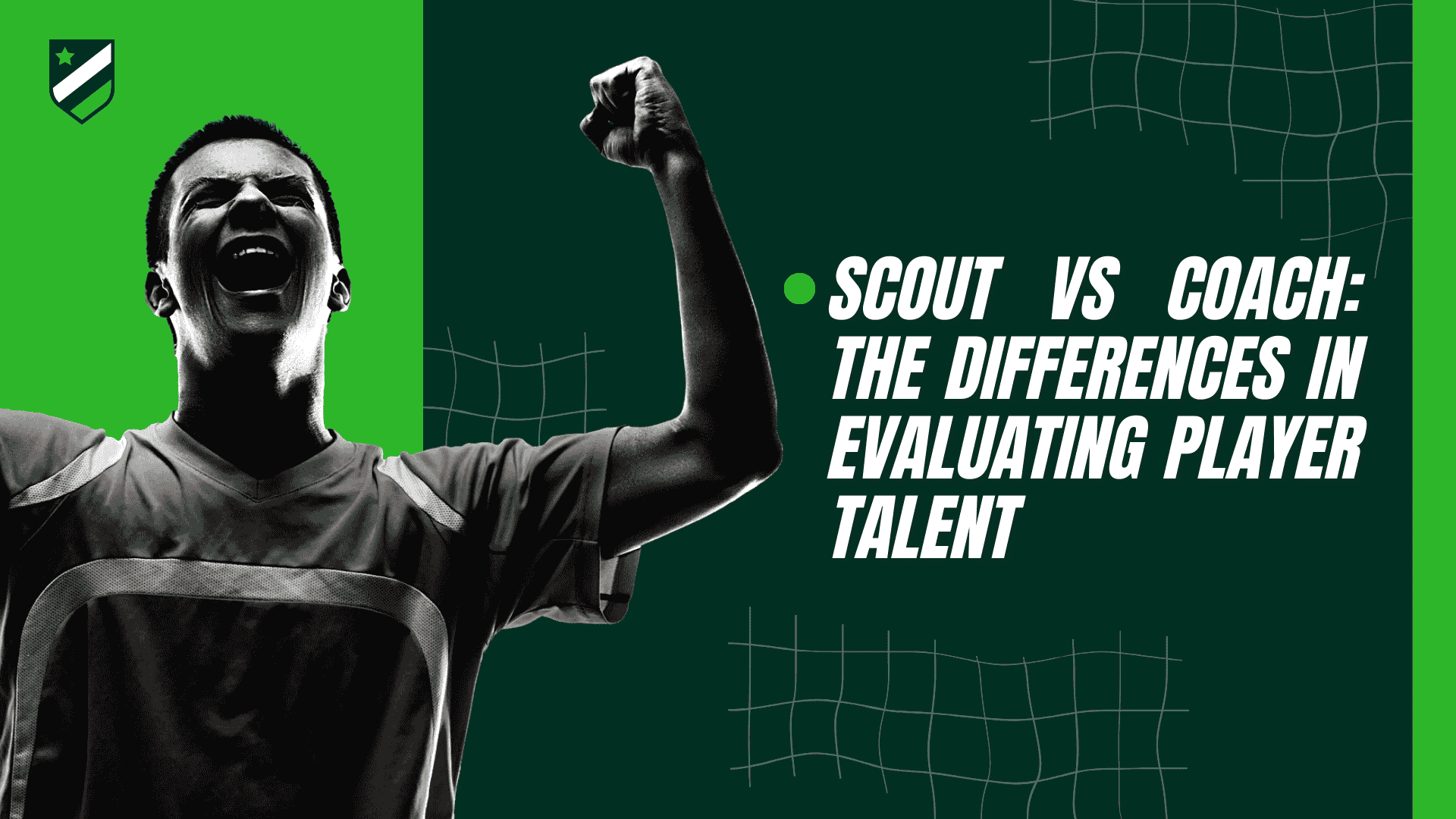When it comes to football, success often boils down to how well a team is assembled. The key to building a winning team lies in identifying players with the right skills, mindset, and potential. However, the approach to player evaluation differs depending on who is doing the assessing. Football scouts and coaches, although working towards the same goal of creating the best team, bring different skill sets, perspectives, and methodologies to the table when it comes to talent identification.
In this article, we’ll dive deep into the fundamental differences between football scouts and coaches when it comes to evaluating player talent. If you’ve ever wondered how scouts and coaches view a player, and how they assess their potential, you’re in the right place. From their distinct approaches to evaluation to the strategies they use, we’ll explore it all.
Hook: Secrets to Player Evaluation—What Scouts and Coaches Know That You Don’t
Did you know that some football scouts can tell within minutes if a player has the potential to make it to the professional level? While coaches often focus on game performance and team tactics, scouts have a unique ability to spot talent based on physical traits, potential, and future growth. In this article, we’ll uncover the insider secrets to scouting and coaching and how they differ when evaluating player talent.

Understanding the Role of Football Scouts and Coaches
Before diving into the specifics of how football scouts and coaches evaluate talent, let’s first explore their roles in the football ecosystem.
The Role of a Football Scout
Football scouts play a pivotal role in identifying players who possess the skills and potential to make it at the highest level of the game. Their job is not to coach or train the players, but rather to evaluate their attributes from a raw, objective standpoint.
Key Responsibilities of a Football Scout:
- Talent Identification: Scouts search for players who can make an impact in the future. This includes watching games, reviewing video footage, and attending trials to spot emerging talent.
- Physical and Mental Assessment: While coaches focus on team dynamics, scouts assess a player’s physical attributes (e.g., speed, strength, stamina) and psychological traits (e.g., resilience, attitude, potential for growth).
- Potential for Growth: Scouts have a forward-looking mindset. They assess how a player might develop over the coming years, rather than just how they perform in the moment.
The Role of a Football Coach
A football coach, on the other hand, has a different role in the development of players. Coaches work directly with players on a daily basis, implementing training regimens, devising strategies, and fostering team cohesion. Their focus is not just on talent but also on how players fit into the team’s structure and the tactical requirements of the game.
Key Responsibilities of a Football Coach:
- Tactical and Technical Development: Coaches provide guidance on improving technical skills, game tactics, and team-based strategies.
- Player Management: Coaches manage player behaviour, ensuring that the team works cohesively and that individual players are well-prepared for match scenarios.
- In-Game Decision Making: A coach’s assessment is often shaped by how a player performs during a match, their adaptability to game strategies, and their teamwork skills.

Key Differences Between Football Scouts and Coaches in Evaluating Talent
The Focus of Evaluation: Potential vs. Immediate Impact
While both scouts and coaches are focused on player development, their primary objectives differ. Scouts often look at a player’s raw potential, while coaches focus on immediate impact and how a player fits into a specific system.
Scouts Look for Long-Term Potential
Football scouts evaluate a player’s talent with an eye toward future development. They assess traits like:
- Athleticism: Speed, agility, and endurance are often key factors in determining a player’s potential.
- Skill Set: Scouts focus on a player’s raw skills, such as dribbling, passing, and shooting.
- Mental Toughness: Scouts also assess a player’s attitude, work ethic, and ability to cope with pressure.
H3: Coaches Focus on Current Performance
On the other hand, coaches assess players based on how they can contribute to the team right now. This involves:
- Tactical Understanding: Does the player understand their position and role within the team’s strategy?
- Consistency: How consistently does the player perform in games?
- Team Chemistry: Coaches need players who work well within the team, not just as individuals.
Different Methods of Evaluation
The methodologies used by scouts and coaches in assessing players can also vary significantly. While both will observe matches, their focus and approach differ.
Scouts Use a Broader Scope
Football scouts tend to look at players over a longer period, often attending multiple games, watching training sessions, and reviewing video footage. Their evaluation is based on:
- General Observation: Scouts often attend games from the sidelines or even from the stands, observing how players perform under different conditions.
- Video Analysis: Modern technology has allowed scouts to use video footage to evaluate a player’s past performances and review key statistics.
- In-Depth Research: Scouts will often conduct background checks, learning about a player’s history, injury records, and family background to get a clearer picture of their potential.
Coaches Focus on Real-Time Assessment
Coaches, on the other hand, work with players on a day-to-day basis, which gives them an advantage when assessing how a player functions in practise and in match situations. Their evaluations often rely on:
- In-Training Observations: Coaches see players interact with teammates in training, which gives insight into how they respond to drills and coaching tactics.
- Match Day Performance: A coach’s judgment often comes from watching players perform in actual matches, where tactics and pressure situations come into play.
- Continuous Feedback: Coaches give players immediate feedback during and after training sessions, helping to shape their performance over time.
The Criteria for Talent Evaluation: What Scouts and Coaches Look for
Understanding the differences in evaluation methods also means understanding the criteria that each uses to assess player talent.
Attributes Scouts Look for in Players
Scouts are looking for raw potential and specific attributes that can help a player grow into a professional footballer. Some of the critical attributes include:
- Speed and Agility: A player’s ability to move quickly and change direction with ease.
- Technical Skills: Ball control, passing accuracy, shooting ability, and dribbling.
- Game Intelligence: Tactical awareness, vision, and decision-making.
- Work Ethic: How much effort a player puts into training and matches.
Attributes Coaches Value in Players
Coaches are interested in attributes that can contribute to the team’s performance. While they certainly look for raw talent, the following are some of the key qualities they evaluate:
- Tactical Understanding: A coach wants a player who can understand and execute game strategies.
- Consistency: Coaches need players who can deliver solid performances week in and week out.
- Teamwork and Communication: A player’s ability to work within the team and communicate with teammates is essential for a cohesive game plan.
- Discipline: Coaches value players who adhere to rules, training regimens, and match day discipline.

How Scouts and Coaches Collaborate in Player Evaluation
Despite their differences, football scouts and coaches must work closely together in evaluating player talent. Scouts bring valuable insights regarding potential, while coaches provide feedback on how players perform within the team.
The Collaboration Between Scouts and Coaches
Scouts often bring new players to a coach’s attention, while coaches give feedback to scouts about a player’s development within the team. Here’s how their collaboration typically works:
| Scouts | Coaches |
| Identify Potential | Develop Player Skills |
| Scout Players in Various Settings | Assess Player Performance in Real-Time |
| Track Long-Term Development | Give Tactical and Mental Guidance |
| Provide Reports and Recommendations | Make Final Decisions on Player Inclusion |
The Importance of Communication
Effective communication between scouts and coaches is key to making accurate and fair assessments. Scouts often provide detailed reports to coaches, while coaches communicate their thoughts on a player’s team dynamics and improvement areas.
Tips for Football Scouts and Coaches When Evaluating Players
Here are some essential tips for both football scouts and coaches to improve their evaluation process:
Tips for Scouts
- Don’t Just Look for the Obvious: Many scouts make the mistake of only focusing on the standout players. Look for hidden gems who may have unique attributes.
- Assess Character and Mentality: Skill alone doesn’t make a great player. Focus on a player’s work ethic, attitude, and resilience.
- Keep a Long-Term View: Always assess a player’s potential for growth rather than just their current ability.
Tips for Coaches
- Understand Your Team’s Needs: When assessing players, always remember how they fit into the bigger picture of your team’s strategy.
- Look for Adaptability: Players who can adapt to different tactical situations are invaluable.
- Build a Strong Relationship with Players: Foster trust and communication so you can get the best out of each player.
The Balanced Approach to Player Evaluation
In the world of football, both scouts and coaches play integral roles in the evaluation process. Scouts are experts in identifying potential, while coaches focus on developing players within the context of their team. By understanding their unique perspectives and collaborating effectively, scouts and coaches can ensure that the best talent is nurtured and developed to its fullest potential.

